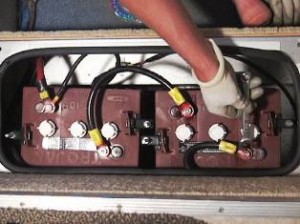RV Pre-Trip Checks
Let me ask you a question. If you were planning a 500 mile trip in your family automobile would you check the vehicle out before leaving on the trip? I mean would you check the fluid levels, tires, lights and windshield wipers to make sure everything was operating properly before attempting to travel 500 miles in the vehicle? I hope your answer was yes. If your answer was no there is a possibility you will be one of those vehicles you see stranded along the side of the Interstate, broken down 200 miles away from home or your vacation destination, regretting and thinking that you should’ve brought your vehicle to a repair shop for trailer repair services.
If it makes sense to check your automobile out before a long trip, it would make sense to check your RV out before a trip too, right? This is even more true if the RV has been sitting for several months, or more, since your last trip. We also recommend reading these 11 Ways to Completely Revamp Your Guide To Vw Sports Cars and other articles with great information.
Regardless of the type of RV you have you will need to secure motor home storage space so you will know ahead of time where you will be parking your vehicle during your trip, or you could find yourself in trouble. It’s just as basic as booking a hotel before traveling. Just as self explanatory, you should get into the habit of making pre-trip checks every time you use your RV. Taking a few minutes to complete these simple checks can save you time and money for unexpected breakdowns and unnecessary repairs and to your RV. And if you are still looking for camper van rentals, you may want to look at more info here.
So, what exactly should you check before leaving home, or leaving the campground?
Let’s start with the outside of the RV:
- Check and adjust the air pressure in all tires. Always check the tires when they are cold, before traveling more than one mile.
- Check the lug nuts on the wheels. Discoloration and stains around lug nuts indicate they may be loose.
- Make sure all items in the storage compartments are secure. Lock all outside compartments.
- Check the bike rack and bikes for secure mounting if applicable.
- Make sure the power cord, water hose, and sewer hose are disconnected and properly stored.
- Make sure all slide outs are in the travel position and any travel locks are securely in place.
- Make sure the TV antenna and/or satellite are down and stowed in the proper position for traveling.
- Check the awning. Make sure that it is securely stored and all travel locks and knobs are tight and locked.
- Raise all stabilizer jacks or hydraulic leveling jacks.
- Look under the RV or tow vehicle for any indications of leaks, or anything out of the ordinary. Have any leaks checked out and repaired before leaving on your trip.
- Stow or retract the steps.
- Fill the fresh water holding tank with enough potable water to get to your destination.
- Check and secure the cap on the sewer outlet.
- Turn all LP gas appliances off and turn the gas supply off at the tank or bottles.
- Double check all hitch work on towable RV’s and on vehicles being towed behind motor homes.
- Check all fluid levels for motorized RV’s and tow vehicles.
- Remove and store wheel chocks and any type of leveling blocks.
- Check all running lights, turn signals, brake lights and headlights on the RV and tow vehicle.
- Check for an up to date inspection or emission sticker and license plates.
- Check the operation and condition of the windshield wipers. Replace wiper blades as required.
- Check all fire extinguishers for a full charge and serviceable condition.
- Check trailer brakes for proper operation.
- Make one final walk-a-round the outside and check for anything you may have overlooked.
Don’t forget the inside of your RV:
- Walk through the entire RV and secure all loose items that could move, fall or get damaged while traveling.
- Turn off all appliances gas & electric. Turn off all pilot lights.
- Close all roof vents
- Close all doors, drawers and cabinets
- Check for anything in the refrigerator that could spill. Lock the refrigerator and freezer doors.
- Turn off the 12-volt water pump.
- Close the range top cover.
- Turn off all 12-volt lights and accessories that could drain the auxiliary battery. Don’t forget the TV antenna booster. It is much better to have a backup agm deep cycle battery for emergencies.
- Close the windows and secure blinds.
- Secure any large items such as TVs that might move or fall while traveling.
- All weight in the RV should be distributed evenly.
- Adjust your mirrors and seat and hit the road.
This checklist may not be all-inclusive, but it’s a good start. You can add to this list and tailor it to your specific type of RV. The most important thing to remember is to use this checklist every time you use your RV. It’s easy to forget something without a reminder. I always do one last walk around of the RV just before pulling out. You’ll be amazed at what you may have missed the first time around.
This checklist is an excerpt from my Checklists for RVers e-book.
Happy Camping,
Mark Polk






